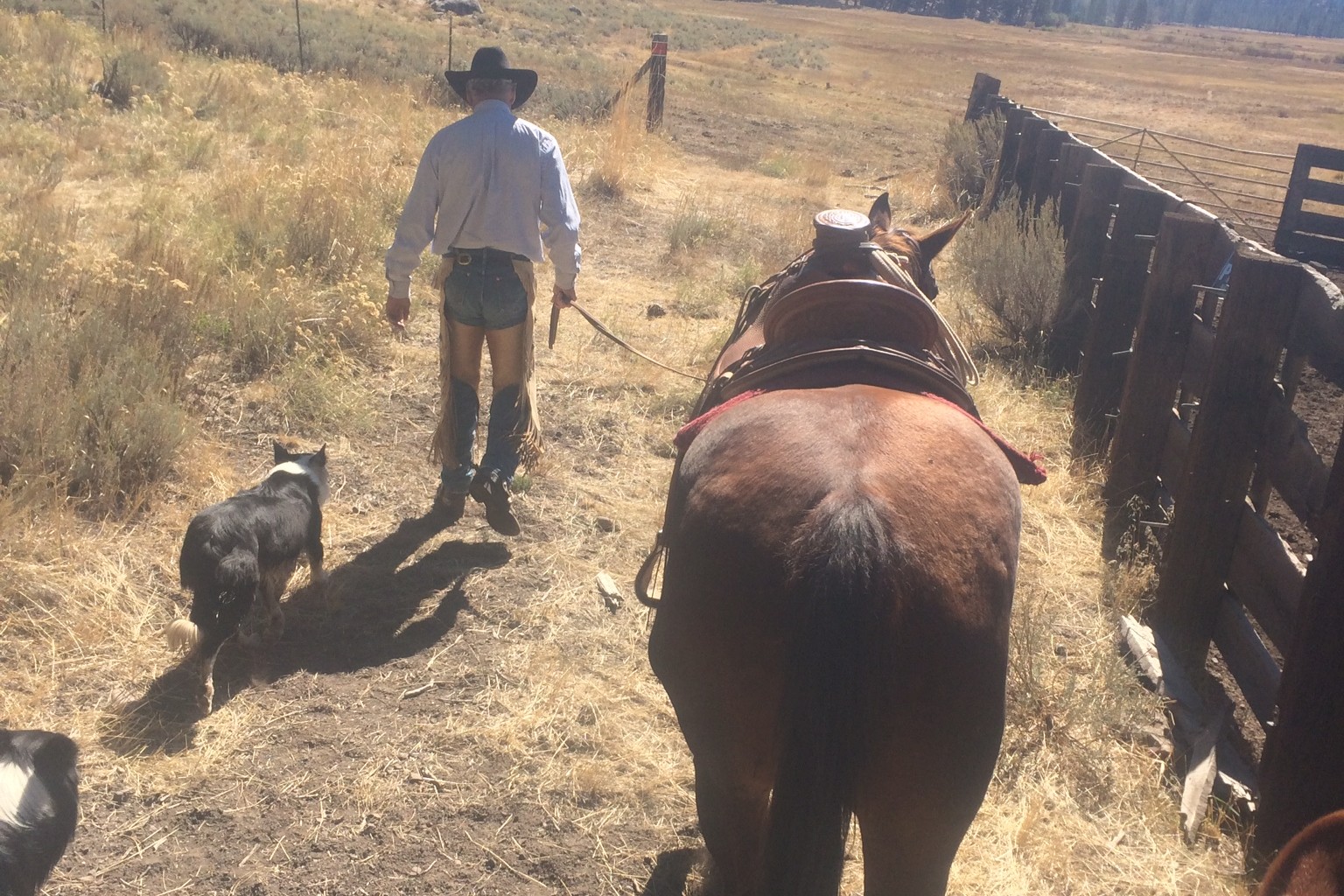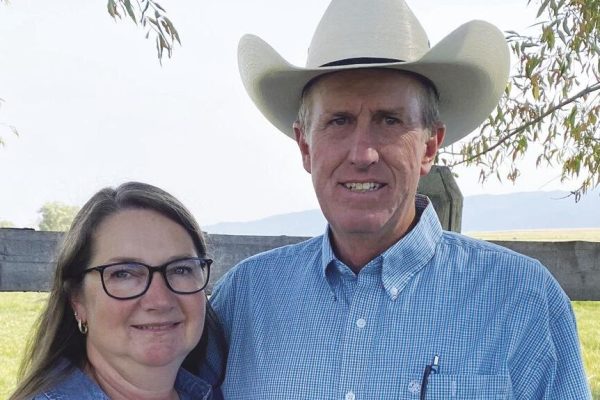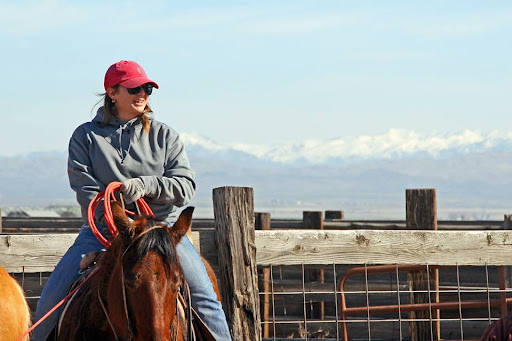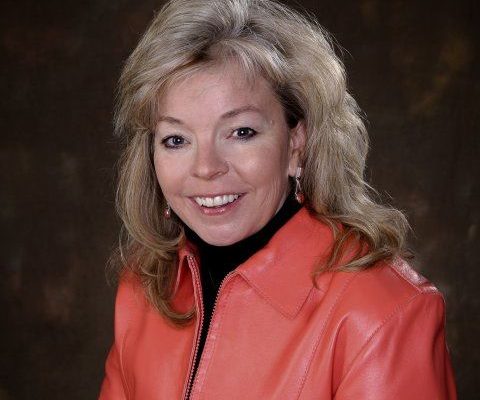Joe Guild’s path to ranching may have started initially with family tradition, but he leverages his education on behalf of the ranching community.
“What’s really interesting about public land ranchers is you’ll find most are college-educated, with many having at least one advanced degree. They know how to ride and train horses; rope cattle; evaluate herd health; act as a veterinarian; operate machinery; act as a mechanic or welder; serve as a hydrology expert understanding water movement; act as a range scientist, knowing a myriad of different plants; and likely hold a leadership position in their community. We all have to wear a lot of hats to be successful.”
Joe attended law school and has represented numerous ranch owners in litigation. He started working in natural resource and water law and began his own consulting business supporting others in the industry. Joe manages a small calf-cow operation on 25,000 acres of public land in a national forest. He also is part of the ranch management team of a larger operation with both cows and sheep on 1 million acres of land. Joe and the ranch employees get up in the early hours of the day to deal with regulations and permits, move cattle, sell calves, and evaluate herd health. In addition to all this, Joe serves as the 2020 Treasurer for the National Cattlemen’s Beef Association.
Working to Adjust Policy To Real Life
Based on his vast experience, Joe recommends federal agencies work flexibly within the regulations to create a more adaptive atmosphere to account for what is actually happening on the ground. “In one year, you might have no rain from April to August, but then you might have a significant winter with two to three feet of snow. This weather pattern produces a whole different quantity of plants and a different variety of plants, which affects the grazing patterns of cattle. Unfortunately, the current policies of many federal land management agencies don’t account for these environmental changes, so the rancher is very limited in his ability to adjust grazing practices to best steward the land.”
Some federal officials are willing to be adaptive within their governing regulations when it comes to land management practices, but others are not. In recent years, Joe worked with range scientists from multiple agencies to develop a new grazing plan that would be more beneficial for the land. Unfortunately, the plan was not implemented because just one person from a state agency voted against it. “The agencies have gotten themselves in a catch 22: if they are creative and flexible and step outside of the boundaries to do things that may be of great benefit to the land, they are criticized and sometimes even sued. It is frustrating to those who seek to achieve the best possible result for the land by adapting to its changing needs to not have the agencies support it.”
Relying on the Range
Joe’s businesses, and the businesses of his clients, rely on a healthy range for their ability to be successful. Ranchers survey the land on horseback, measuring levels of forage and feed and ensuring the health and ongoing presence of water sources.
In 2015, when Joe and his partner could not find a good water source on a piece of land because of the drought in Nevada, he called his Forest Service Ranch Conservationist and recommended the land should not be used for grazing. “Agriculture and the work that supports it, improves the land. Ranchers would never do something that harms the land, that would diminish their ability to produce a livelihood for their family.”
The Carson River runs through a portion of the range on the smaller ranch Joe manages. The water is used to irrigate hay fields and valley pastures. There is a tributary that runs right through one of the valleys on the range. In order to prevent degradation of the streambed, Joe and his partners move the cattle away from the stream a few times a week. But the ranchers run into a challenge.
“The Forest Service prefers natural irrigation systems, but ranchers want to build irrigation systems that make it easier to manage the water. Rather than be able to manage the water in the proper way, and do some diversion work to cut down on erosion and other challenges, we just have to deal with the status quo.”
Ranchers Know The Land Best
There are not enough agency employees to take care of public lands. Ranchers are the best investment that the American people have to turn the land into an economic win. The animals on this land evolved over millions of years to adapt to its conditions and ranchers know how to preserve the best land conditions for the health of the animals and vice versa.
“It touches basic human emotions, needs and aspirations. Ranchers are all hardwired to seek the best outcomes from the land. To watch the hay crop grow from a winter stubble to a luxurious green and to make sure each individual animal has the best life they can, it’s really satisfying.”





